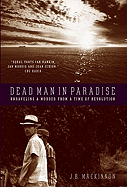Notes: Store Plays in Peoria; Fireside to Close
U.S. shoppers will spend more than $39 billion online during the
holiday season, a record, JupiterResearch predicts, according to AFP. The firm also estimated that 126 million Americans will buy items online by the end of December, a 6% increase from last year.
"This market remains insulated from macroeconomic factors cited to
adversely affect overall holiday retail sales," the firm said. "As a
result, retailers are planning to increase their efforts to attract
customers across a variety of tactics with search marketing leading the
way."
---
I Know You Like a Book, the Peoria Heights, Ill., bookstore that
opened in May 2006, is doubling in size, to about 1,500 square feet,
and will open longer hours on the weekend, as it takes over space
vacated by a neighboring business, the Peoria Journal Star reported. Owned by Mary Beth Nebel, the store sells new and used books and has a wine bar.
I Know You Like a Book is located at 4707 Prospect Road, Peoria Heights, Ill. 61616; 309-685-2665.
---
In December, Dennis and Linda Fennell, plan to close Fireside Books, in Holland, Ohio, which they opened in 1988, according to the Toledo Blade. Dennis told the paper that sales have slipped steadily since the mid-1990s. Besides the arrival of several chain superstores, the store was hurt by a two-year road improvement project that cut sales 40% and the closing of a supermarket in the store's retail strip that reduced customer traffic.
---
We're sad to report that Peg Bracken, author of The I Hate to Cook Book, has died at age 89. The iconic cookbook, published in 1960, sold more than three million copies in several editions. As today's New York Times noted, "Every baby boomer's mother, or so it seemed, had one on the kitchen shelf, its pages stained with the makings of Stayabed Stew, Sole Survivor and Spinach Surprise." [Editor's note: such was the case in our house, where the most apt title would have been I Like to Cook Sometimes But I Hate to Cook Every Night.]
---
Manga sales may be declining in Japan, but Wired
magazine's detailed examination of the market revealed how dominant the
genre's influence remains: "The role of manga in the broader economic
ecosystem is perhaps more important than its actual sales figures.
Japan's vaunted pop culture apparatus, it turns out, is really a manga
industrial complex. Nearly every aspect of cultural production--which
is now Japan's most influential export--is rooted in manga. . . . Trace
any of Japan's most successful media franchises back to their origins
and you'll likely end up inside a colorful brick of newsprint, where 20
pages of exquisitely matched words and drawings tell the inaugural
story."
Acknowledging that the manga industry needs "a force
that can reenergize its fans, restock its talent pools, and revive its
creative mojo," the article suggested that this force may have arrived
in the controversial form of "nonprofessional self-published manga
known as dojinshi," in which "most offerings plucked characters
from popular manga series and dropped them into new scenarios. The
authors told me they were uncovering hidden potential in their favorite
stories--revealing themes, relationships, and plot lines that were
gurgling just beneath the surface of the official narrative."
The copyright violations were described as "flagrant, shameless, and widespread."
And immensely popular.
---
"We are not your grandmother's library," Kimberly Lynn, president of the Massachusetts Library Association, told the Boston Globe,
which reported that "in the era of waning readership and Internet
search engines, libraries in Massachusetts and across the country are
shifting their resources and expertise to areas once unthinkable. . . .
The modern-day library, Lynn said, is a community living
room-cum-reference clearinghouse, with some digital gaming sprinkled
in."
"It's a zoo," Lynn added. "It's chaotic. It's not getting quieter."













 About 8,000 people (and perhaps some more-evanescent creatures) attended the first
About 8,000 people (and perhaps some more-evanescent creatures) attended the first  On June 22, 1965, in Monte Plata, a small town in the Dominican Republic, Art MacKinnon was shot to death. Art was a young Catholic priest from Canada and during his five years in the Dominican Republic, he had made many friends. "He was a padre in the church and an hombre in the street," one of those friends tells Art's nephew. Retracing his uncle's steps, J.B. MacKinnon has come to answer questions that have haunted the MacKinnon family for 40 years.
On June 22, 1965, in Monte Plata, a small town in the Dominican Republic, Art MacKinnon was shot to death. Art was a young Catholic priest from Canada and during his five years in the Dominican Republic, he had made many friends. "He was a padre in the church and an hombre in the street," one of those friends tells Art's nephew. Retracing his uncle's steps, J.B. MacKinnon has come to answer questions that have haunted the MacKinnon family for 40 years.